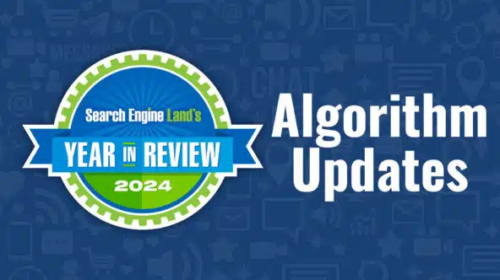Link building: the least favorite part of SEO
We asked our audience: What is your least favorite part of SEO? Link building was named most often, with Google a close number two.
There are plenty of reasons to love SEO. I certainly do and have since I started my SEO journey in 2007.
But every job has unique challenges – aspects that can be frustrating, difficult, tedious or even downright painful.
That’s why, earlier this week in the Search Engine Land newsletter, I asked readers: What is your least favorite part of SEO?
Well, we have a winner. Or loser?
It’s link building. More than 20% of respondents said link building was their least favorite part of SEO.
Let’s dig into the results.
Link building and outreach. It’s time-consuming. It’s tedious. And success is never guaranteed. These are a just few of the biggest complaints from SEOs about trying to build quality links that we saw from Search Engine Land readers:
- “Getting backlinks – it is the equivalent of a vampire sucking your soul for very little return.”
- “Obviously, getting natural links is nice, but when you’re out there fishing for them, it may or may not be fruitful. It’s so time-consuming and there’s no guarantee you’ll see the results you want.”
- “Too much work to get any reward. It often feels pointless.”
- “Dealing with websites that used xyz backlinks in the past. Sometimes, I’ll inherit a client whose previous agency did so, and I end up having to clean it up because it looks bad on my end if potential clients or fellow SEOs are looking at my clients’ backlink profiles to see how we do SEO at my agency.”
- “There is nothing more tedious and frustrating than reaching out to website owners who are getting spammed 24-7 by all and sundry to try and build a relationship in order to promote an asset your team has spent loads of time creating to either be ignored or to have to go through the awkward process of negotiating only to end up having to chase for weeks or even months to get the link live. It’s like, ‘Head, meet brick wall…’ This is a direct result of so much bad practice out there coming back to impact people who are trying to get it right.”
- “It takes so much time, thought and care to build lasting links, especially at scale in the B2B space.”
- “It’s the most abused area of SEO.”
Google. Yes, Google. There were a range of complaints. A few were specific to Google Business Profiles:
- “Way too many spam listings outranking actual, quality businesses. Legitimate reviews are being removed. If you happen to get suspended for no reason, support is a nightmare to deal with to get your listing back up. And yet, you’ve got deal with GBP, at least in local SEO, because of its prominence in the SERPs.”
- “Lack of control. Such an important listing for local businesses, yet so volatile. Make it paid already and give us more control and better customer service.”
- “Too many businesses are able to create spam websites and GBP listings, which makes it a volatile space. The world would be a better place if spammers didn’t exist. Now I have to fight spam each day to help my client be in the position they were supposed to be in.”
But our readers shared other Google-related complaints, ranging from algorithm update timing to GA 4:
- “Google releasing algo updates right before the holidays.”
- “The metrics for the so-called “Page Experience” are so ambiguous in testing and evaluating.”
- “They’re trying their darndest to keep everyone in their ecosystem instead of allowing clicks through to sites. Their profits last year say it all.”
- “Dealing with and understanding white lies coming from Google representatives.”
- “It took me a while to set up Google Analytics and it’s my 24/7 go-to for monitoring traffic to my online fashion store. I’m not looking forward to moving to the next generation, GA4, especially while all the features I currently use are not yet available. I’m sure I’ll eventually adapt but it will take some time.”
Proving the worth of SEO. Have you had to convince your organization that SEO is a smart investment? The answer should be as simple as, “Have you heard of this thing called Google.” Well, now you can point them to this article: Why SEO is a great investment, not just a cost.
Defending the value of SEO shouldn’t be such a struggle anymore. It’s 2022. Yet here we are:
- “People not taking SEO seriously or understanding the worth of its investment and time.”
- “The expectation that results will be immediate and positive every time.”
- “Having to work double as hard as PPC managers to prove SEO’s worth.”
- “Explaining to clients why an automated report they received from a cousin’s, best-friend’s former roommate has no context and should be ignored.”
- “The constant doubting from other ‘SEO experts’ on the marketing team is demoralizing and demotivating. It’s hard to feel confident as an SEO, because the foundations keep shifting.”
- “Pushback from uneducated executives or ones who have been jaded by snake-oil SEOs in the past. Makes it really tough to execute on what you know will work, especially when the proof of whether your tactics work or not can take so long in coming to validate your strategies.:
- “The amount of effort and time sometimes necessary for clients to implement the changes needed for them to be successful in organic search.”
More least favorite parts of SEO. Finally, a few randoms. These answers didn’t fit into any of our other buckets, but they are all valid reasons for these being called out as a least favorite part of SEO:
- “Technical optimisation. Never straightforward as to what exactly is causing the issues, and more often than not you need help from a developer. It’s rewarding once the problem is solved but the process is a bit of a maze.”
- “Watching what appears to be a well-optimized page rise and fall sporadically in the SERPs. It’s maddening.”
- “The uncertainty of what actually influences SERP position. It seems like a mystery and a moving target which makes it hard to manage.”
- “Keyword analysis, hangs me out of my throat. Uses 5 different tools, and has trouble stopping when enough is enough.”
- “Reporting. Nobody reads reports sent by the SEO team. You could send the same report every month and nobody would notice it. I like reporting by exception.”
- “Cheap, unappreciative clients.”
- “Digging through tons of articles on SEO topics posturing as new insights, that actually contain old platitudes or even bad analyses, just to find those few pieces a month that actually bring some new insight.”
- “Trying to find unique product titles for 2,000 products made with the same metal (jewelry). When I see squiggly or zig-zag on a site, I know I am not alone!”
- “Identifying expertise among agencies. When everyone starts with a similar checklist of best practice recommendations, it’s difficult to know who will be able to transition into an individualized strategy for our business.”
- “Dealing with developers. It’s always hard to convince them about how important stuff is and to have them added to their backlog soon.”
- “Keeping up with technology and UI changes in all the different platforms. I’m fine with keeping up with best practices, trends, evolving standards, strategies, and explaining them to internal and and external stakeholders. It’s adapting to all the menus and paths in all the different software and platforms in order to get things done. Every day, I’m closer to becoming my dad struggling to reprogram the VCR.”
- “Well… it depends.”
(Note: you can read even more answers to this same question on Twitter. Google’s John Mueller asked the same question.)
Why we care. It’s good to share our frustrations with our peers. Clearly, many of you are experiencing some similar pain points in the SEO world. Just remember, it’s completely normal to not like parts of your job all the time. That could go for certain tasks, projects, clients or co-workers. And if you love link building? We salute you!





